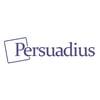One of the key considerations in data-driven jury selection is the identification of favorable jurors based on their background and beliefs. This involves analyzing a wide range of data, such as demographic information, voting history, social media activity, and even purchasing habits. By delving into these details, lawyers can gain valuable insights into potential jurors' decision-making processes and biases.
For example, if a case involves a product liability claim, lawyers may look for jurors who have a negative perception of corporations or who have previously expressed concerns about product safety. On the other hand, if the case involves a criminal defense, lawyers may seek jurors who have a strong belief in the presumption of innocence or who have shown support for defendants in similar cases.
The use of data in jury selection also extends to identifying potential biases and prejudices. By examining a juror's social media activity or public statements, lawyers can uncover any indications of bias that may impact their ability to be impartial. This can be particularly valuable in cases where the subject matter is sensitive or controversial, as it allows lawyers to ensure that jurors are open-minded and capable of making fair and unbiased decisions.
In addition to reducing bias, data-driven jury selection can also save valuable time and resources. Traditional methods of jury selection often involve extensive questioning and background checks, which can be time-consuming and costly. By utilizing data analysis tools, lawyers can quickly identify potential jurors who are more likely to be favorable, allowing them to focus their efforts on a smaller pool of candidates. This not only saves time but also reduces the financial burden associated with the selection process.
Furthermore, data-driven jury selection can increase the likelihood of a favorable verdict by strategically selecting jurors who are more likely to be receptive to a particular argument or position. By understanding the demographics and beliefs of potential jurors, lawyers can tailor their arguments to resonate with the chosen jury, increasing the chances of a successful outcome. This approach can be particularly advantageous in cases where the evidence is complex or difficult for the average juror to comprehend, as it allows lawyers to present the information in a way that is more likely to be understood and appreciated.
While concerns exist about the potential drawbacks of data-driven jury selection, such as a one-size-fits-all approach or a lack of diversity, the benefits of this approach are undeniable. As technology continues to advance and more data becomes available, lawyers will have access to even more sophisticated tools for analyzing potential jurors. This will further enhance the accuracy and effectiveness of jury selection, ultimately benefiting both defendants and plaintiffs in the legal system.
The shift towards data-driven jury selection is an important development in the legal profession. By relying on statistical analysis and data, lawyers can reduce bias, save time and resources, and increase the likelihood of a favorable verdict. While challenges and concerns exist, the potential for revolutionizing the trial process and achieving more equitable outcomes makes data-driven jury selection an increasingly significant aspect of the legal landscape.
Other A2L Consulting articles and resources related to jury selection, voir dire, mock trials and jury consulting:
- 5 Secrets for Trying Cases in SDNY
- 5 Questions to Always Ask in Voir Dire
- Is Hiring a Jury Consultant Really Worth It?
- 15 Things Everyone Should Know About Jury Selection
- 6 Types of Jurors That Can Fly Under the Radar
- 10 Signs of a great jury questionnaire
- Courtroom technology, mock trial and graphics support in NY
- Litigation graphics use in NY
- A2L nominated by New York Law Journal as best demonstrative evidence firm, best litigation consulting firm, best hot seat operators and best jury & trial consultants
- 10 Ways to Lose Voir Dire
- Do I Need a Local Jury Consultant? Maybe. Here are 7 Considerations.
- Jury Selection: So Few Strikes, So Much at Stake
- The Voir Dire Handbook | Free Download | A2L Consulting
- Jury Selection and Voir Dire: Don't Ask, Don't Know
- 7 Tips to Take “Dire” out of Voir Dire
- Jury Selection Experts . . . True or False?
- A2L Voted Best Jury Consultants by LegalTimes






Leave a Comment